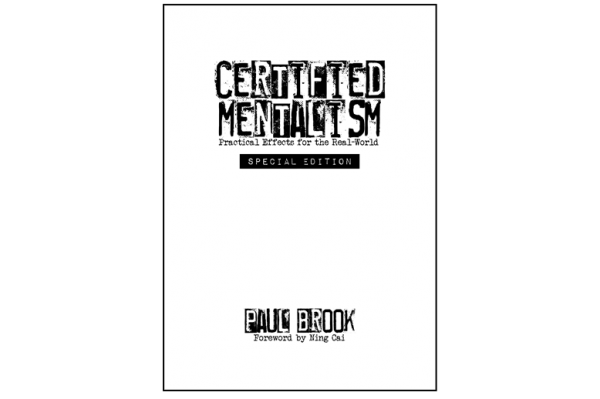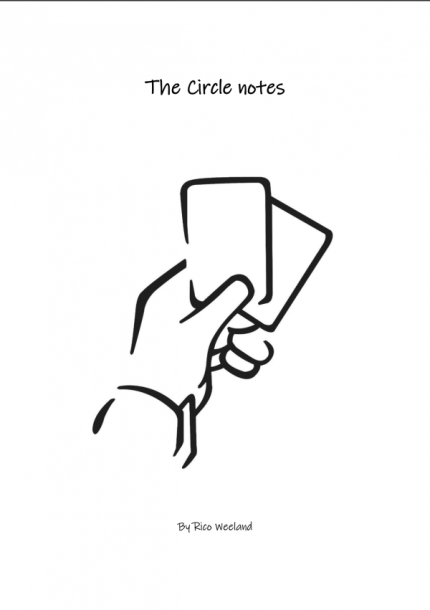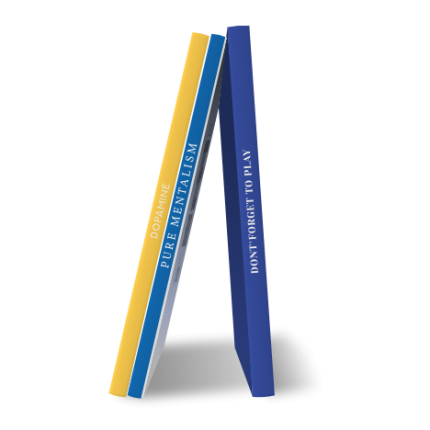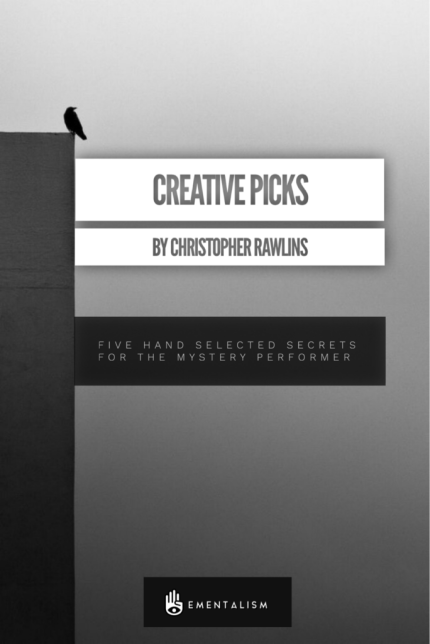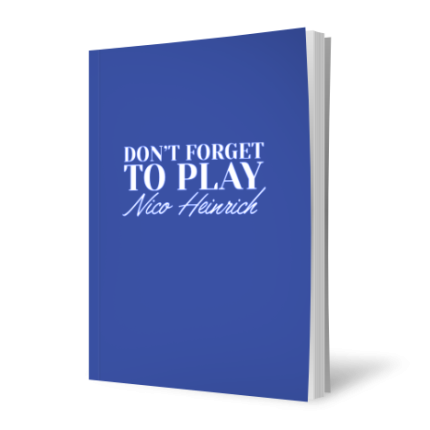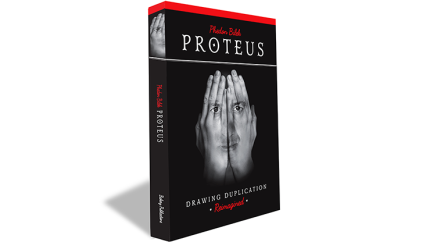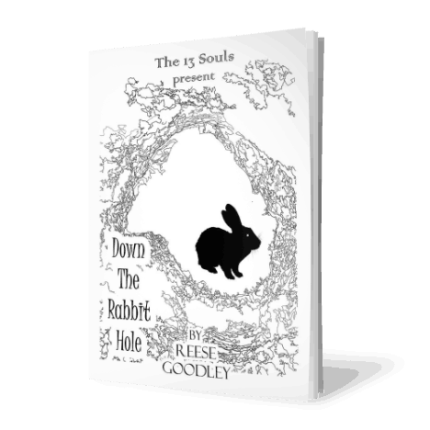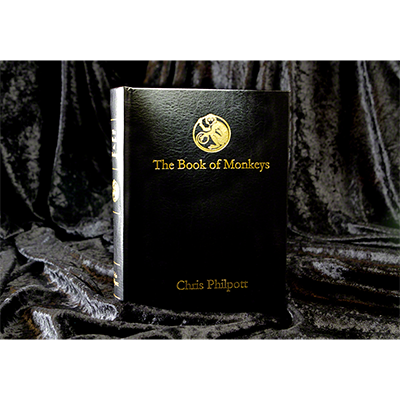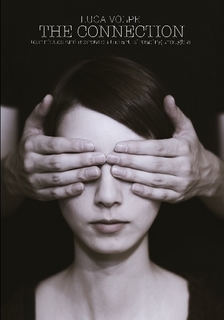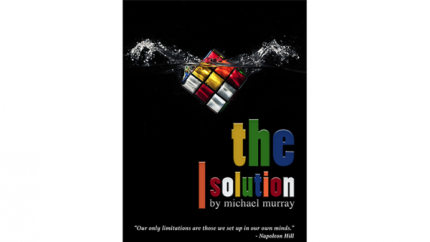Description
FOREWORD BY NING CAI
Mentalism comes in many shapes and sizes. Some ideas are just ideas and others are the result of repeated performances, creating strong and powerful mentalism. Certified Mentalism has been over a year in the writing and contains a large selection of my tried and tested routines. There are seventeen effects shared within the pages that cover a mixture of close-up and stage routines in equal proportions. Here is what you will find within the book:
Sharprediction
A perfect addition to any drawing duplication routine. Sharprediction allows you to demonstrate that you have influenced the participant to draw what they have drawn. Better still the participant has been holding the object that influenced them right from the start.
The Wrong Order
Due to a delay in his drinks order the performer arrives on stage holding a takeaway coffee cup. He explains that the company not only got his name wrong but the order was incorrect too. The performer asks a member of the audience to stand and say their name. The audience member is asked to guess at the contents of the cup. The performer explains that this must be the person’s order as it has his name written largely on the side and contains the drink he named. The cup, including the beverage is then given away to the person as a souvenir.
Sans Loxodonta
The principle of increasing the power of a method by taking something away and how I stumbled upon it.
The Copenhagen Cover-Up
The performer and the participant choose to travel the world together. Misfortune hits and the luggage arrives in a different country than the desired destination. With all the choices being made by the participant, it comes as a surprise that the predictions made by the performer match exactly.
Artist’s Block
Writer’s block is a well-known problem, but artists suffer the same fate. There is a popular technique that allows artists to generate inspiration for their art. The performer asks the participant to follow this process and generate an image of her own, which she then concentrates on and mentally sends to the performer. Picking-up a pen and pad the performer is able to replicate the image with precise accuracy.
The Simulacrum
Two participants stand on stage, the performer holds a large pad in between them and both begin to draw at the same time on the opposite sides of the same pad. To the surprise of the audience the images match. Not to each other but to a prediction that the performer has displayed since the beginning.
Top Tier Psychometry
At a corporate function the boss is sat on stage in a chair facing the audience and is blindfolded. Five employees are selected at random and each person is asked to place a personal object into a small velvet bag. The bags are mixed and those who provided items stand in a line on stage. The performer opens a bag and describes the item inside vaguely. The boss, still blindfolded and seated, is able to say which participant the item belongs to. This process continues until all but one of the items is correctly returned to their respective owners. The last participant’s item is accurately described by blindfolded the boss then returned.
Threeform Thought
In this fast paced piece of mentalism, the participant is asked to think of any three shapes and to choose any two of the shapes, combining them to make a new image. The performer is able to tell the participant exactly what image is being thought of.
Psychic Countdown
A stack of blank business cards are handed to the audience along with a pen. These items are to be passed around and a letter of the alphabet is to be written on each card until there are no more blank cards remaining. These cards are mixed by a member of the audience and placed into two piles. The audience makes a decision as to which side the business cards are drawn from and nine are selected in this manner and displayed. The audience generates the largest word possible from these letters and it perfectly matches to a prediction that was handed out at the start of the routine.
Business Trader
A lie detection routine using business cards from both the performer and those within the group. After displaying the ability to understand the human mind, the performer takes things up a gear by telling each person in the group their secret pleasures.
The Shortest Story
An envelope is handed out to an audience member and the audience decides which type of story that they wish to create; romance, comedy or horror. The performer explains that every story ever written can be broken down into three short sentences consisting of a beginning, middle and an end. A pad of paper is opened containing the premise of a well-known story that matches the selected genre. However, three important words are missing from the story and the audience chooses three random words to fill the blank spaces. Now the story may not even make sense, but when the envelope in the audience is opened the performer has predicted the type of story chosen and the exact words chosen by the audience in the form of a self-drawn movie poster.
Don’t be Alarmed
The performer asks a person to guess what time in the morning the performer wakes-up, minute specific, and arrives at the answer 8:35. The performer’s phone is activated and his alarm opened to reveal that the person has correctly guessed the time the performer awakens. In response to this, the performer then correctly tells the person what time she wakes-up each day.
Authentication
The performer explains to the audience what the most common passwords are and also asks random audience members to reveal some of their old ones. Now the performer openly writes a prediction. A member of the audience is brought on stage and creates a secure password. When the prediction is revealed it perfectly matches this strong password.
Chess in the Hand
Chess is the ultimate mental strategy game of the ages. A person is asked to name any chess piece and say if it is black or white. The performer’s hand, which has been in sight the entire time, opens to reveal the named chess piece in the exact colour.
Monosemy
A sheet of paper is torn from a pad, balled-up and thrown into the audience. The person who catches the ball is asked to name a letter of the alphabet and this is written on the pad in full view of the audience. The ball of paper is thrown repeatedly and the people who catch it name letters until around thirty or so letters fill the pad. The last person to catch the paper ball joins the performer on stage and chooses six of the letters. The audience then make the biggest word possible from these letters. When an answer is given the paper ball is opened to reveal that same word written upon it.
The Password Generator
An envelope is held by the performer while he writes down a password for the participant to guess. Shockingly the participant guesses the performer’s password. Now the performer asks the participant to think of a random password. The envelope is opened and a business card removed which contains the participant’s random password written on it.
Connect the Dots
A pad of paper is handed to a person in the audience with the instruction to place exactly thirty dots on the paper randomly. Once done, the pad is passed to another member of the audience who gives each dot a number from one through to thirty in any order. Another audience member connects ten random dots with straight pen lines. Using those lines as inspiration, a mental image is created. The performer is then able to correctly replicate the image that the audience member is thinking of.
Unlimited Drawing Duplication
A two person, two phase drawing duplication where one person is limited by their own drawing ability and the other person has unlimited choice because they merely think of the image and will not have to draw it. The performer is able to replicate the drawn image and then, even more surprisingly, reveal the image that the person has in his mind.
Special Edition
The Certified Mentalism Special Edition contains four of my most treasured routines in full detail. These additional routines are still used by me to this day and are as follows:
The Sneaky Rogue
Everyone in the audience is asked to think of something illegal or immoral they have done. A ball of paper is thrown to select five random audience members, they join the performer on stage and each draw their illegal act while the performer looks away. The drawings are all mixed-up so that the performer cannot know who has drawn which image. The first four people are reunited with their crimes based on a lie detection presentation, with the final person having their crime correctly guessed by the performer. As a kicker the paper ball thrown to pick the audience members is opened to reveal a prediction of the final person’s crime.
Unquestionably Mental
Approaching a group of people, the performer asks the group a series of questions to understand their thought patterns. Two people are selected and both are asked to think of an object. Each person is asked to answer three questions about their object, but only in their mind, not out loud. After the three questions are asked, the performer is able to correctly guess each person’s object.
That Paul Brook Routine
The performer enters the group, looking for two very different types of people. After a few questions the performer discovers two people each with different ways of thinking. The person with the most artistic ability out of the two makes a drawing, while the person who cannot draw so well merely thinks of an image. Grabbing two business cards, the performer makes a guess for each person, both are exactly correct.
Three Phase Book Test
A participant chooses a word from a book that the performer is flipping through; the performer then reads her mind. To make it harder, the performer looks away and holds the book by his side as the participant chooses a word. The performer then reads her mind. Impossibly the performer now gives the participant the book to hold herself and she chooses a word from anywhere in the book, yet the performer is, yet again able to read her mind.
 100vw, 778px” data-lazy-srcset=”https://84magicstore.com/wp-content/uploads/2022/02/cm-image-5s.jpg 778w, https://www.heknows.co.uk/wp-content/uploads/2018/12/CM-Image-5s-601×400.jpg 601w, https://www.heknows.co.uk/wp-content/uploads/2018/12/CM-Image-5s-768×511.jpg 768w, https://www.heknows.co.uk/wp-content/uploads/2018/12/CM-Image-5s-510×340.jpg 510w, https://www.heknows.co.uk/wp-content/uploads/2018/12/CM-Image-5s-600×399.jpg 600w, https://www.heknows.co.uk/wp-content/uploads/2018/12/CM-Image-5s-645×429.jpg 645w, https://www.heknows.co.uk/wp-content/uploads/2018/12/CM-Image-5s-560×373.jpg 560w, https://www.heknows.co.uk/wp-content/uploads/2018/12/CM-Image-5s-750×499.jpg 750w, https://www.heknows.co.uk/wp-content/uploads/2018/12/CM-Image-5s-400×266.jpg 400w” data-lazy-src=”https://84magicstore.com/wp-content/uploads/2022/02/cm-image-5s.jpg” /></p>
<p><noscript><img loading=)


